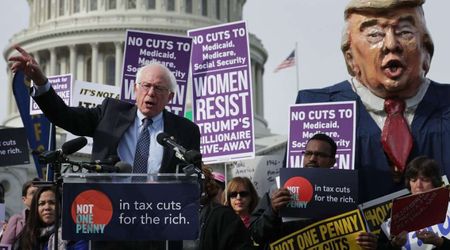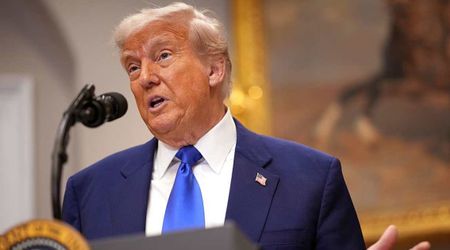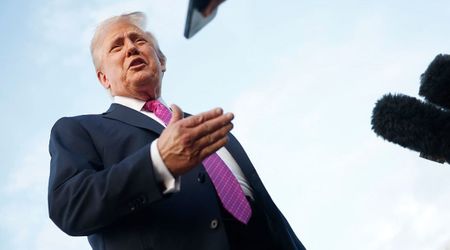What Are Carbon Offsets? Can They Actually Cut Planet-Heating Emissions?

Carbon offsetting or offsetting emissions is being promoted as a way of reducing the carbon footprint of large corporations amid worsening climate crisis. Carbon offsets are tradable “rights” or certificates linked to activities that lower the amount of carbon dioxide (CO2) in the atmosphere. However, there has been a rise in greenwashing of emissions with several offsetting schemes making misleading claims and false promises. Here’s everything you need to know.

What is Carbon Offsetting?
Carbon offsetting is a way of reducing the impact of emissions. It involves increasing the carbon storage or capture through forest land restoration or planting trees, as they are responsible for absorbing the majority of carbon emissions. Through various schemes, offsetting companies issue carbon credits, each worth one metric ton of carbon for companies to buy and offset their emissions.

Forest Carbon Offsetting
Forest-based carbon offsetting works on the principle of saving trees from commercial projects or planting more trees to offset emissions. In this, funds are used to protect and cultivate forests in various parts of the world. One such project is the Kariba project in the West Indies, which was operated in association with a carbon offsetting company called South Pole.
We spoke to South Pole’s Regional Director of Climate Policy, Finance, and Carbon Markets, Mauricio Mira Pontón.
— South Pole (@southpoleglobal) November 6, 2023
Here he shares his insights on the current and future state of #LatinAmerican #CarbonMarkets and his expectations for negotiations at #COP28. https://t.co/SwZhtq3bj9
Greta Thunberg’s Influence on Offsetting and The Rise of Carbon Offsetting Companies
In 2018, climate activist Greta Thunberg's campaign put pressure on companies to go green. They turned to one of the easiest ways out, carbon offsetting. This caused the business of carbon-offsetting companies like South Pole to skyrocket. Thunberg denounced offsetting as “a dangerous climate lie,” but the market continued to grow, as per the New Yorker.
Companies like Nestle, Porche, Gucci, and JetBlue announced that they would use South Pole credits to help offset the emissions. The carbon market grew sevenfold to two billion dollars a year and South Pole further made deals with Gazprom Chevron and TotalEnergies to sell its Kariba credits.
Downsides of Forest-Based Carbon Offsetting
The most concerning downside of forest-based offsetting is that it is extremely difficult to quantify how much carbon these schemes offset. Further, it is difficult to prove that the protected forests would be destroyed without the protection provided by the schemes.
Another issue is the “leakage”, which argues that even if the agents of deforestation are driven out of the protected area, they may cut down trees someplace else, still causing harm to the environment. So, while greenhouse gases can stay in the atmosphere for thousands of years, these protection projects may last only a couple of decades.
Even the UN’s carbon system which allowed offsets in a variety of categories, excluded forest-carbon projects, because of the challenges of verifying their benefits. Research has found that carbon credits issued by various companies like South Pole were environmentally dubious, according to a New Yorker report.
Critics argued that carbon offsetting simply gave companies to continue polluting and then greenwash themselves and their products by buying dubious credits.
The problem with companies like South Pole
When South Pole started its operation in Kariba, it worked through a local tycoon who controlled the forest development area. The deal was to use the vast majority of the proceeds from credit sales for the upliftment of the local community.
However, reports found that only a little of the proceeds were used to develop the area and much of the funds were not accounted for. Despite the red flags, South Pole continued to sell Kariba credits making millions.
When the Kariba project completed a decade it was required to be inspected by Verra, a private entity that became the primary standard-setter and certifier of carbon credits sold by the voluntary carbon trade.
After months of reviewing satellite imagery, the Verra determined that the South Pole had underdelivered on its promises. It estimated that only 15 million of the 42 million carbon credits sold by the South Pole had been backed by avoided emissions. The rest of the supposedly offset tons of carbon were claimed to be false by Verra, as per the New Yorker report.
After several reports and a tape recording of the employees leaked to the public, South Pole’s executives were ordered to stop selling offsets from the Kariba project. However, even after months of learning of the miscalculation, South Pole had sold more than three million environmentally worthless credits to Porsche, Nestlé and Nando’s among others.
A large part of the carbon credits that hundreds of companies bought from South Pole turn out to be a paper reality. Even after the company found out the offsets were falling short, it continued to sell them to its customers. https://t.co/KUO6jBu50i
— Follow the Money EU (@FTM_eu) January 27, 2023
Following this, several staffers of the company resigned, consumer groups began suing companies for greenwashing, and the European Parliament proposed banning claims of net neutrality based on offsetting. Companies like Gucci dropped their carbon-neutral claim, Volkswagen, Barclays, and L’Oréal, said that they would stop buying offsets from the Kariba project, New Yorker reported.
The Way Ahead
While carbon offsets may not be the solution to climate change, they can still play a valuable role. The focus should be on making them useful by working on the flaws in the mechanisms of verification.
Recently, the Voluntary Carbon Markets Integrity Initiative was launched, with backing from the British government, to set guidelines on carbon offsetting. It seeks to help investors ascertain whether claims made by companies using carbon offsets are credible.
Reuters reported that under the claims code, companies in all tiers need to make a public commitment to achieving science-based net zero targets no later than 2050 and set interim targets on how this will be achieved.





















